When Hollywood talks about range, Jack Lemmon’s name inevitably enters the conversation as the gold standard of versatility. From slapstick comedy to gut-wrenching drama, Lemmon seamlessly transformed himself time and again, earning two Academy Awards in completely different categories (Supporting Actor for “Mister Roberts” and Best Actor for “Save the Tiger”). As we look back on his remarkable six-decade career, it’s clear that few performers have ever matched his ability to make us laugh uproariously one moment and move us to tears the next.
1. Ensign Pulver in “Mister Roberts” (1955)
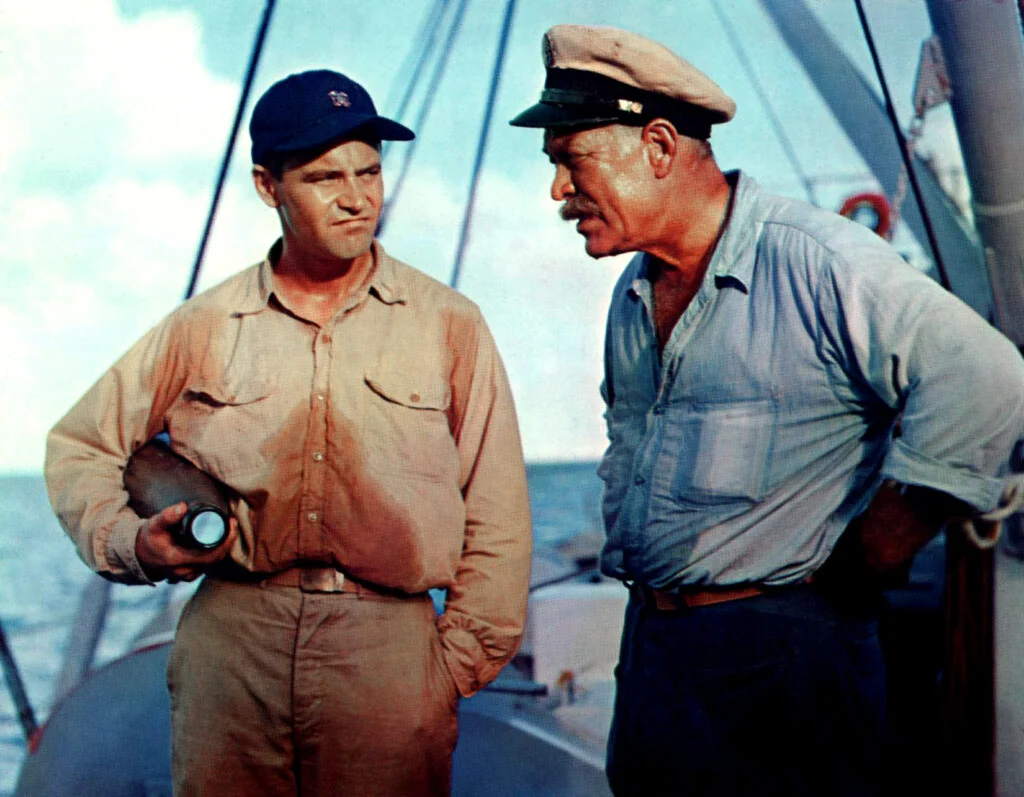
Jack Lemmon burst onto the Hollywood scene with his Oscar-winning performance as the lazy, scheming Ensign Pulver, a character that perfectly showcased his gift for physical comedy and impeccable timing. His memorable laundry room scene—where a homemade firecracker experiment goes hilariously wrong—demonstrated his ability to build comedic tension and deliver explosive punchlines with perfect precision. Lemmon brought a youthful exuberance to the role that contrasted beautifully with Henry Fonda’s more serious title character. Over five decades later, IMDb reminds us that plenty continue to think about this movie led by such a standout star.
What made this performance truly special was how Lemmon managed to make Pulver simultaneously immature yet ultimately heroic by the film’s conclusion. Critics at the time noted his rare ability to play a character who could be both ridiculous and genuinely touching—a hallmark that would define his entire career. This breakthrough role immediately established Lemmon as a multidimensional performer who could handle comedy with remarkable depth, winning him the Academy Award for Best Supporting Actor and announcing the arrival of a major talent.
2. Joe Clay in “Days of Wine and Roses” (1962)
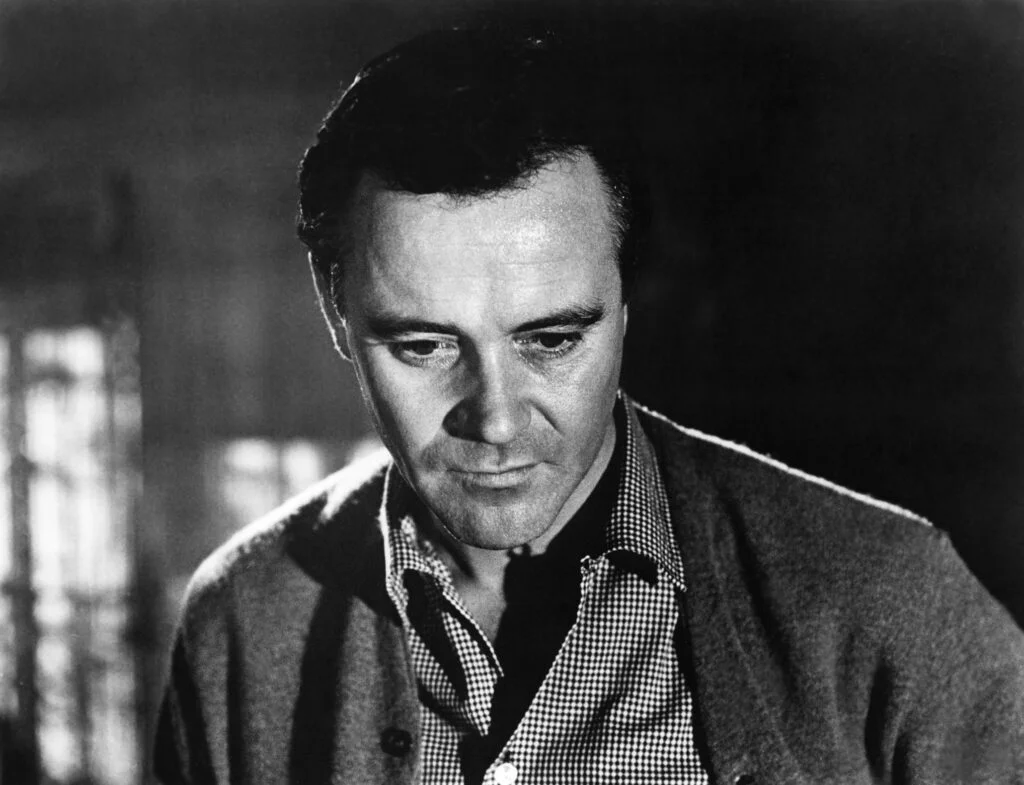
In one of cinema’s most harrowing portrayals of alcoholism, Lemmon’s Joe Clay takes us on a devastating journey from charismatic public relations man to rock bottom and the grueling fight for sobriety. The scene where Joe desperately tears apart a greenhouse looking for a hidden bottle showcased Lemmon’s willingness to strip away all vanity and expose raw human weakness. His chemistry with Lee Remick created one of film’s most believable relationships, making their shared descent all the more heartbreaking. Britannica remembers this lineup as a dreamteam.
What’s remarkable about this performance is how thoroughly Lemmon subverted his comic reputation, proving he could handle the heaviest dramatic material with astonishing conviction. Director Blake Edwards later revealed that Lemmon actually abstained from alcohol for weeks before filming to better understand his character’s struggles with sobriety. This role permanently altered Hollywood’s perception of Lemmon’s capabilities, demonstrating he could tackle deeply serious subject matter with the same excellence he brought to comedy.
3. C.C. Baxter in “The Apartment” (1960)
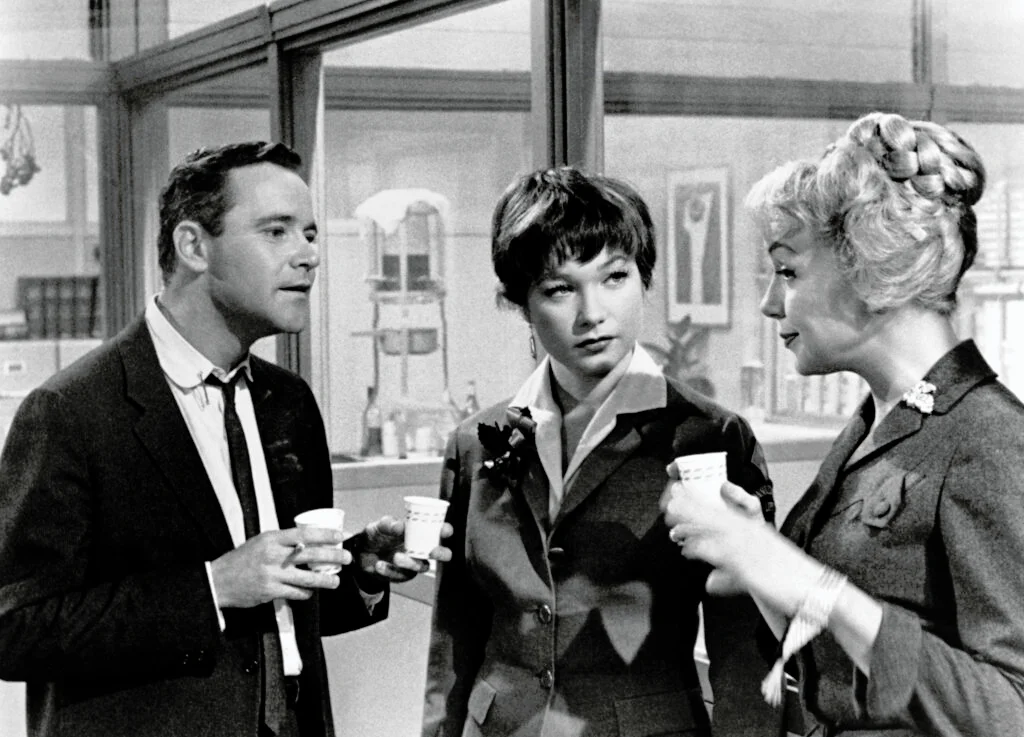
As the ambitious office worker who lends his apartment to company executives for their extramarital affairs, Lemmon created one of cinema’s most memorable everymen—simultaneously sympathetic and complicit. His physical comedy while straining spaghetti with a tennis racket or battling a head cold displayed his impeccable timing, while his growing moral crisis revealed layers of emotional depth. The way Baxter’s cheerful facade gradually cracked to reveal genuine loneliness and conscience made this character unforgettable. The Guardian celebrates this film as a triumph for all involved.
Director Billy Wilder specifically tailored this role for Lemmon after their previous collaboration, recognizing his unique ability to make morally compromised characters likeable. The film’s perfect balance between comedy and heartbreak—winning Best Picture—established Lemmon as an actor who could carry sophisticated material that defied simple genre classification. His performance earned him his first Best Actor nomination and cemented his reputation as an actor who could find humanity in flawed characters.
4. Harry Stoner in “Save the Tiger” (1973)
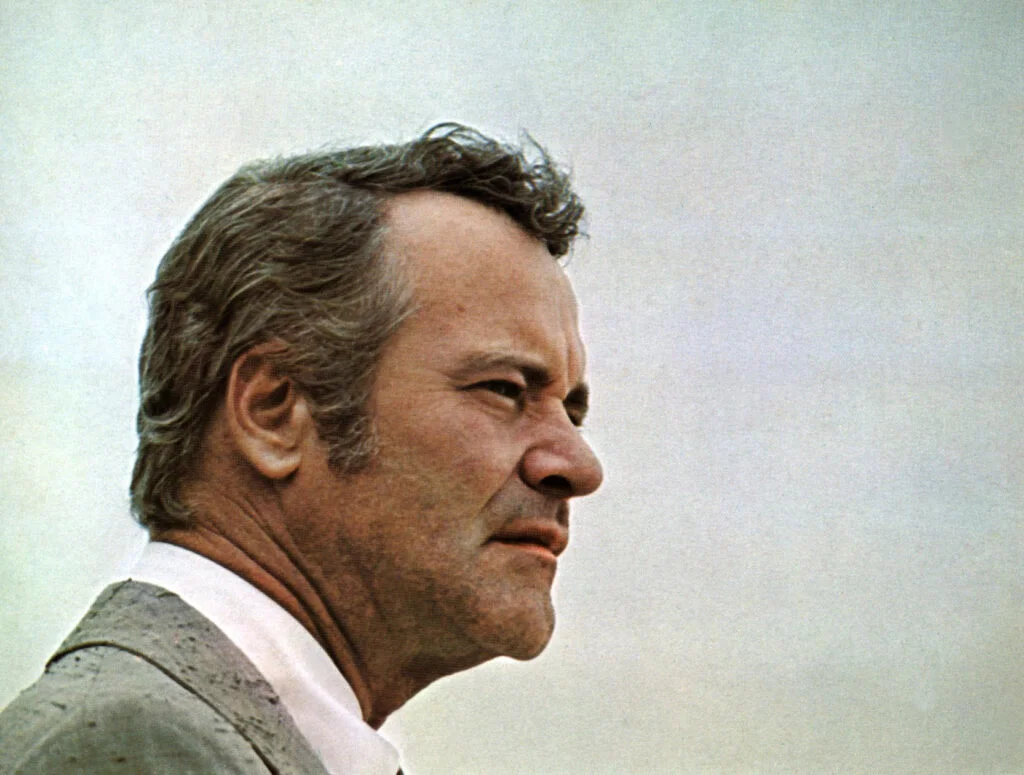
Lemmon won his second Oscar (this time for Best Actor) for his portrayal of Harry Stoner, a once-idealistic businessman now drowning in moral compromise and considering arson to save his failing company. His monologue about World War II memories while lying in bed represents some of the most vulnerable acting ever captured on film—a man completely undone by the gap between his youthful ideals and corrupted present. Lemmon inhabited Stoner’s exhaustion so completely that audiences could feel the weight crushing his spirit. GoldDerby writes of the award-winning triumph that Lemmon enjoyed thanks to his performance.
What made this performance extraordinary was Lemmon’s willingness to make Stoner simultaneously sympathetic and culpable—a man we understand even when we cannot approve of his actions. Director John G. Avildsen later revealed that Lemmon took a substantially reduced salary to get this challenging, commercially risky film made. This role showcased Lemmon’s rare ability to convey inner turmoil through subtle gestures and expressions, proving that his dramatic abilities had reached their absolute pinnacle.
5. Felix Ungar in “The Odd Couple” (1968)
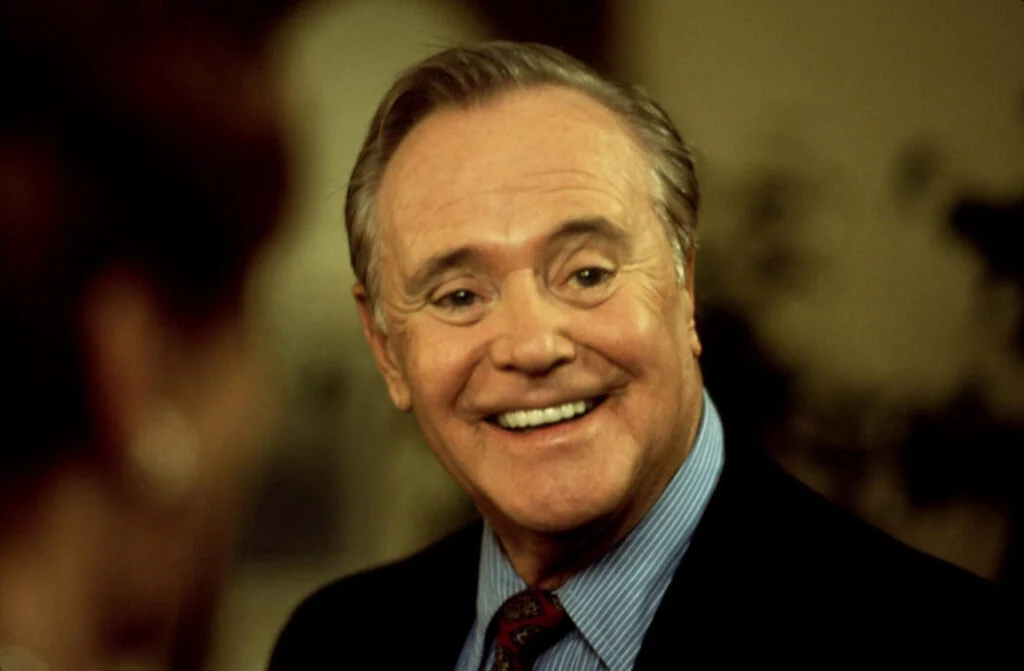
Lemmon’s portrayal of the impossibly neurotic, cleaning-obsessed Felix Ungar opposite Walter Matthau’s slovenly Oscar Madison created one of cinema’s great comedic duos. His performance as the recently separated perfectionist elevated physical comedy to high art—from his legendary sinus-clearing scene to his methodical disinfection of Matthau’s apartment. Lemmon somehow made Felix’s maddening fussiness endearing rather than annoying, finding the wounded humanity beneath the obsessive behavior.
What’s particularly impressive about this performance is how Lemmon avoided turning Felix into a simple caricature, instead creating a fully realized person whose neuroses stemmed from genuine pain and insecurity. Neil Simon, who wrote both the play and screenplay, often credited Lemmon with bringing dimensions to Felix that weren’t necessarily on the page. This role perfectly demonstrated Lemmon’s gift for making potentially irritating characters deeply sympathetic, finding the universal humanity in even the most exaggerated personality types.
6. Shelley Levene in “Glengarry Glen Ross” (1992)
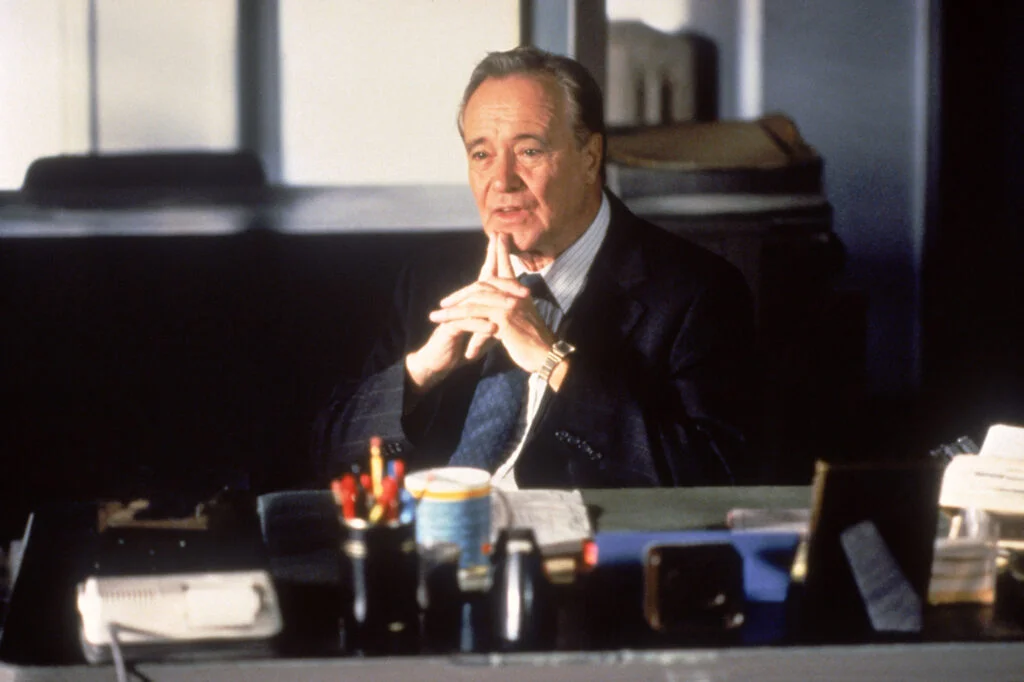
As the once-successful but now desperate real estate salesman Shelley “The Machine” Levene, Lemmon delivered a masterclass in portraying a man clinging to faded glory while facing professional extinction. His opening scene in the rain, pleading with his boss for better leads, showed the painful collision of pride and desperation. When Shelley briefly recaptures his former selling prowess mid-film, Lemmon’s transformation is electric—decades of confidence resurface before crumbling again in the devastating final scenes.
Director James Foley revealed that Lemmon, then in his late 60s, insisted on performing with the same intensity through multiple takes, never diminishing his emotional commitment. What’s remarkable about this late-career performance is how Lemmon, himself a Hollywood legend, fearlessly portrayed an aging man confronting his own professional irrelevance. The role earned him another Academy Award nomination and showed that even after decades in the industry, Lemmon continued pushing himself to new dramatic heights.
7. Jerry/Daphne in “Some Like It Hot” (1959)
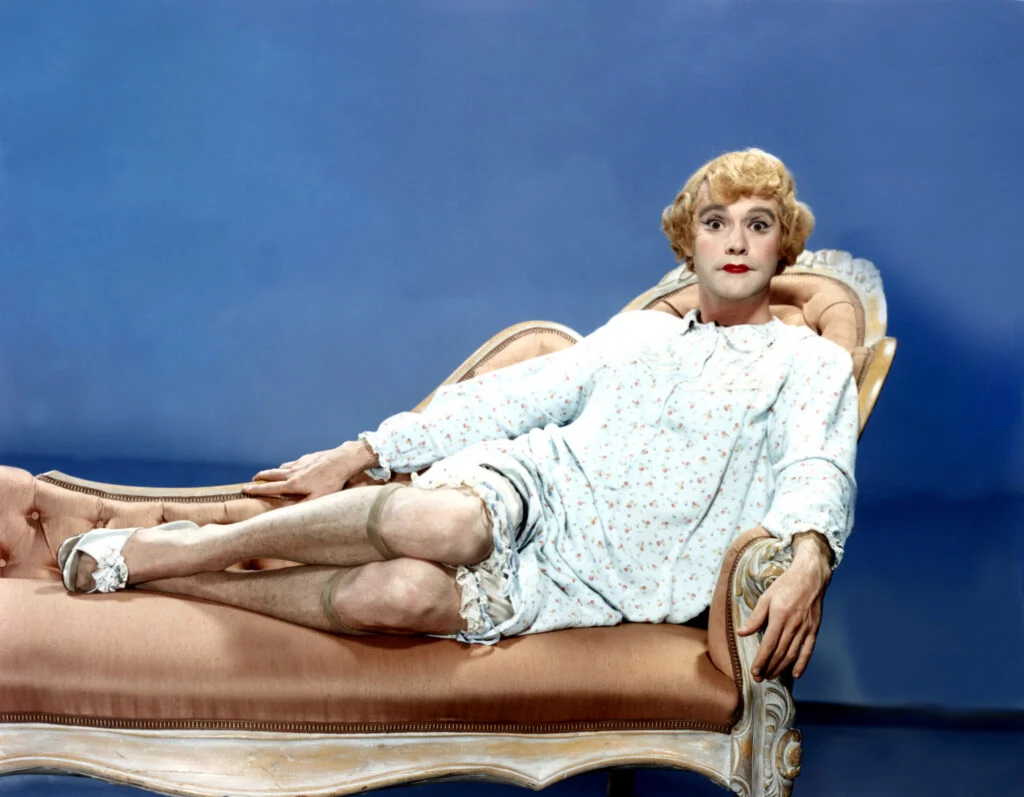
Disguised as female musicians to escape gangsters, Lemmon’s Jerry embraces his feminine persona “Daphne” with such enthusiasm that the performance transcends simple cross-dressing comedy. His tango with millionaire Osgood Fielding III ranks among cinema’s greatest comic sequences, with Lemmon leading despite supposedly following. The scene where Daphne announces “her” engagement—excitedly shaking maracas while describing Osgood’s proposal—showcases Lemmon’s gift for physical comedy with remarkable subtlety and precision.
Director Billy Wilder noted that while Tony Curtis approached his female disguise technically, Lemmon fully inhabited Daphne as a distinct character with her own personality. This total commitment elevated what could have been mere farce into something more dimensional and memorable. The performance highlighted Lemmon’s fearlessness as a comedian willing to fully commit to absurd premises without winking at the audience, creating comedy that remains timelessly funny rather than merely of its era.
8. Henry Fonda in “Tribute” (1980)
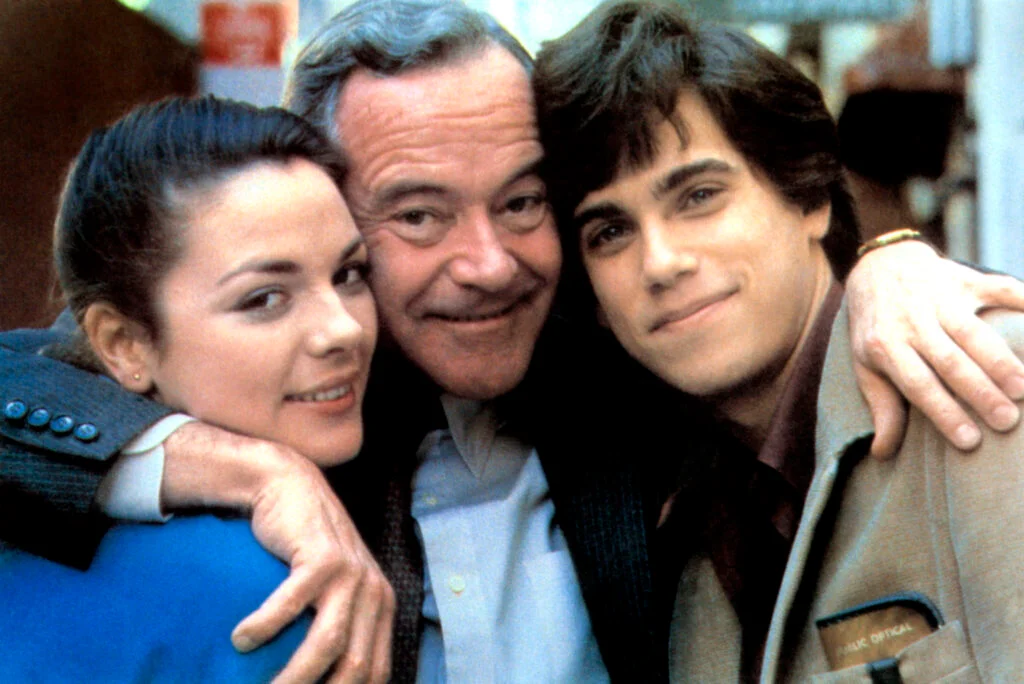
As Scottie Templeton, a terminally ill Broadway press agent attempting to reconcile with his estranged son, Lemmon delivered a heartbreaking study in regret and connection. His hotel room breakdown, realizing he has wasted his life hiding behind jokes, represented emotional vulnerability rarely seen in male performances of that era. The brilliance of Lemmon’s work was how he made Scottie’s professional charm and personal failures equally convincing—a man who could delight an entire room while failing those closest to him.
Having originated the role on Broadway, Lemmon brought incredible nuance to the film version, with critics noting how he conveyed Scottie’s declining health through increasingly subtle physical choices. This performance perfectly demonstrated Lemmon’s unique ability to play characters using humor as emotional armor, then devastate audiences when that armor finally cracked. The role earned him another Academy Award nomination and represented some of his most personally revealing work.
9. Jack Godell in “The China Syndrome” (1979)
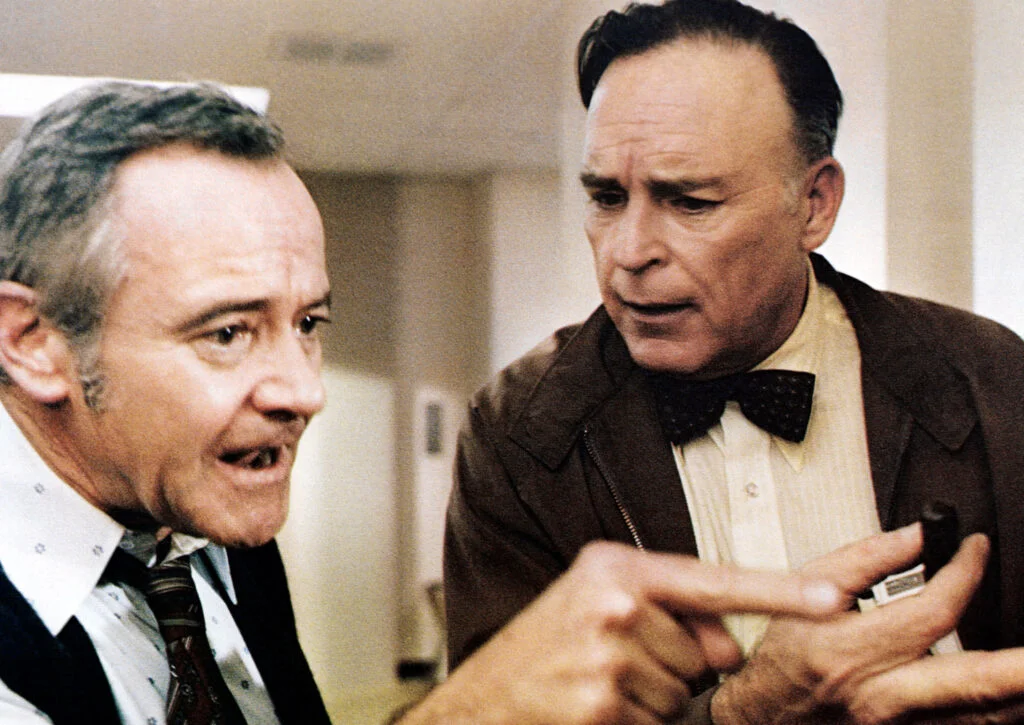
As a nuclear power plant supervisor who discovers dangerous safety violations, Lemmon created a compelling portrait of an ordinary man forced into extraordinary moral choices. His transformation from company man to reluctant whistleblower unfolds with meticulous psychological detail, culminating in a control room standoff where Godell’s deteriorating mental state mirrors the plant’s own instability. Lemmon conveyed escalating panic while maintaining the character’s technical expertise, making complex engineering concepts dramatically comprehensible.
Released just 12 days before the actual Three Mile Island nuclear accident, the film gained eerie relevance that highlighted Lemmon’s utterly convincing performance. Director James Bridges noted that Lemmon spent weeks studying nuclear engineering and visiting actual plants to ensure authenticity. This role perfectly demonstrated Lemmon’s gift for portraying professional expertise convincingly while navigating complex ethical dilemmas, earning him another Academy Award nomination and proving his dramatic powers remained at their peak.
10. John Gustafson in “Grumpy Old Men” (1993)
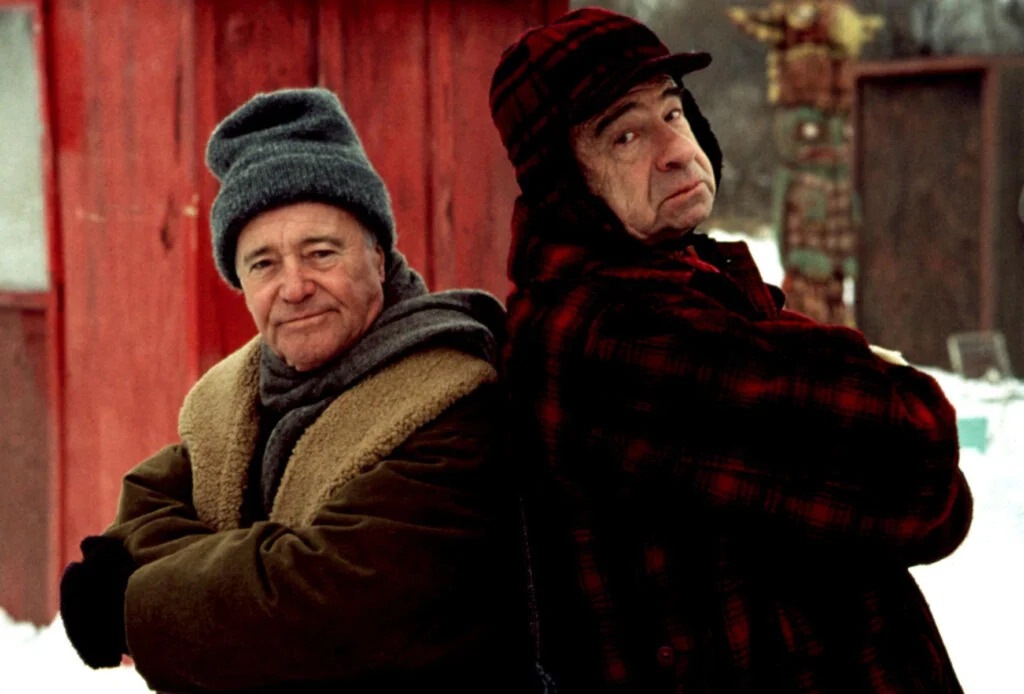
In this late-career comedy hit, Lemmon played retired widower John Gustafson engaged in an escalating prank war with his lifelong neighbor and rival (Walter Matthau). What elevated the performance beyond standard elderly comedy was Lemmon’s ability to balance outrageous physical gags with genuine emotional vulnerability, particularly in scenes involving his character’s heart condition and romantic reawakening. His ice fishing sequences with Matthau showcased their legendary chemistry, with decades of friendship informing their perfect comic timing.
What’s particularly special about this performance is how Lemmon embraced playing his actual age (68 at the time) without vanity or sentimentality, creating a character dealing authentically with aging, loneliness, and new beginnings. The film’s enormous commercial success—spawning a franchise—demonstrated Lemmon’s enduring appeal across generations of moviegoers. This role perfectly showcased his ability to find both humor and dignity in aging, creating comedy that acknowledged life’s challenges while celebrating its continuing possibilities.
Jack Lemmon’s extraordinary career reminds us that the truly great actors refuse to be limited by genre, type, or expectation. From comedy to tragedy, from villains to heroes, from youth to old age, Lemmon brought uncommon humanity to every role he tackled. What united his diverse performances was an emotional transparency that made audiences feel they were watching a real person rather than a performance. In an industry often obsessed with image and specialization, Lemmon’s fearless versatility and commitment to emotional truth remain his greatest legacy—a master class in the art of acting that continues to inspire performers today.


